|
Books Should Be Free Loyal Books Free Public Domain Audiobooks & eBook Downloads |
|
|
Books Should Be Free Loyal Books Free Public Domain Audiobooks & eBook Downloads |
|
Top Authors |
|---|
|
Book type:
Sort by:
|
By: Helen Hunt Jackson (1830-1885) | |
|---|---|
 Ramona
Ramona
Set in Old California in the wake of the Mexican-American War, Ramona is two stories at once. It is the story of the love between a part-Native American orphan girl, Ramona, and Alessandro, a young Indian sheepherder. It is also the story of racial prejudice and the clash between cultures as California changes from a Spanish colony to an American territory. Ramona is the ward of Señora Gonzaga Moreno, who despises the girl for her race but honors the dying wish of the Señora's sister, Ramona's foster-mother, to raise her as her own... | |
 Letters from a Cat
Letters from a Cat
Letters from a Cat: published by her mistress for the benefit of all cats and the amusement of little children is a collection of letters that a little girl receives from her pet while she is away from home. They tell of her pet’s adventures and misadventures. The book includes a preface which gives a little biography of the cat including its sad demise. H.H. was the alias of Helen Maria Hunt Jackson (1830 –1885) who is better known for her novel Ramona in which she dramatized the mistreatment of Native Americans and which formed part of her campaign for improved treatment of Native Americans by the U.S. Government. | |
 Bits About Home Matters
Bits About Home Matters
This book is a collection of short observations by Helen Hunt Jackson, several with children and parenting as the subject matter. | |
 Between Whiles
Between Whiles
| |
 Mammy Tittleback and Her Family A True Story of Seventeen Cats
Mammy Tittleback and Her Family A True Story of Seventeen Cats
| |
 Saxe Holm's Stories
Saxe Holm's Stories
| |
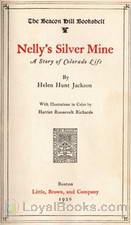 Nelly's Silver Mine A Story of Colorado Life
Nelly's Silver Mine A Story of Colorado Life
| |
 The Hunter Cats of Connorloa
The Hunter Cats of Connorloa
| |
 Mercy Philbrick's Choice
Mercy Philbrick's Choice
| |
 Hetty's Strange History
Hetty's Strange History
| |
 Hetty's Strange History
Hetty's Strange History
| |
By: Isabella Alden (1841-1930) | |
|---|---|
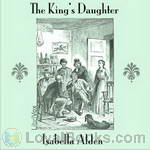 The King's Daughter
The King's Daughter
Dell Bronson has been reared in Boston by her refined uncle and aunt until, at age 18, she is called home by her father, a coarse tavern owner in Lewiston. As a daughter of the heavenly King, she strives to honor her heavenly Father by wooing her earthly father to Christ and away from rum. Set in the era of the temperance movement of the 1800’s. Authored by Isabella M. Alden under the pen name “Pansy.” Third in the Ester Ried series. | |
 Ester Ried
Ester Ried
Authored by Isabella M. Alden under the pen name “Pansy.” Ester Ried’s life is a dull monotony of toiling at her family’s boardinghouse. She’s overworked, jealous and cranky, a poor example of a Christian to her family and associates. She awakens to a new attitude and commitment due to an extended visit with her cousin. | |
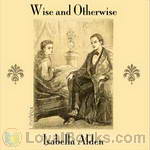 Wise and Otherwise
Wise and Otherwise
Immature Mr. Tresevant (from “The King’s Daughter”) comes to Newton with his spoiled wife to be the new pastor of the church attended by Dr. and Mrs. Douglass, Mr. and Mrs. Sayles, and Mr. and Mrs. Tyndall (from “Ester Ried” and “Julia Ried”), boarding with Jerome and Abbie Sayles. Authored by Isabella M. Alden under the pen name “Pansy.” Fourth in the Ester Ried series. | |
 Julia Ried
Julia Ried
Authored by Isabella M. Alden under the pen name “Pansy.” Sequel to “Ester Ried.” Julia Ried must take a job as a bookkeeper in a factory to earn a living. The mistress of her boardinghouse influences her in a negative way, drawing her into a life and attitude displeasing to God. Will her family and friends be able to convince her stand up for what’s right? | |
 Four Girls at Chautauqua
Four Girls at Chautauqua
Authored by Isabella M. Alden under the pen name “Pansy.” First in the Chautauqua Girls series. Four friends – spoiled, quirky Ruth; fun-loving and mischievous Eurie; poor, independent and brainy Marion; and meek, approval-seeking Flossy – attend Chautauqua on a lark, and their lives are changed forever. (Chautauqua is an adult education movement in the United States, highly popular in the late 19th and early 20th centuries. The Chautauqua brought entertainment and culture for the whole community, with speakers, teachers, musicians, entertainers, preachers and specialists of the day.) | |
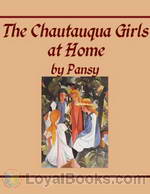 The Chautauqua Girls at Home
The Chautauqua Girls at Home
Sequel to Four Girls at Chautauqua. Ruth, Flossy, Eurie, and Ruth return home as new Christians, eager to begin working. Their new faith clashes with their old lives, which they must overcome, as well as the prejudices of friends and acquaintances. | |
 Ester Ried's Namesake
Ester Ried's Namesake
Ester Ried Randall tries to live up to her parents’ expectations and the name she’s been given, but her religion is a chore. Will she learn the lesson of faith that Ester did? Fifth and final book in the Ester Ried series. Authored by Isabella M. Alden under the pen name “Pansy.” | |
 Judge Burnham's Daughters
Judge Burnham's Daughters
Fifth in the Chautauqua Girls series. Ruth Erskine Burnham has helped raise her husband’s two daughters, but all have rejected her faith and values. The constant pressure to compromise has weakened her walk and made her life miserable. Her one comfort is her somewhat sickly 5 year old son. Will she return to the strong faith of her young womanhood, and will her family finally follow? | |
 Ruth Erskine's Crosses
Ruth Erskine's Crosses
Third book in the Chautauqua Girls series. Written by Isabella Alden under the pseudonym “Pansy.” Ruth’s father brings home a wife and daughter, after 18 years, that Ruth had never known about. Suddenly she is no longer the queen of her home. And what’s worse, the new mother and sister are rude and antagonistic. How will Ruth bear this cross? | |
By: Harriet Jacobs (1813-1897) | |
|---|---|
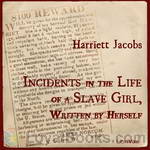 Incidents in the Life of a Slave Girl, Written by Herself
Incidents in the Life of a Slave Girl, Written by Herself
Born in slavery, but being fortunate enough to be owned by a benevolent mistress, her life takes a tragic turn when her parents and her benefactor die. The new heir to the property (and slaves) is a cruel and lewd man who begins to make inappropriate advances to the lovely young slave-girl. In a bid to escape, she becomes entangled in a relationship with a neighboring landowner who promises a better life, and she even has two children. However, things become worse for her when her cruel owner decides to punish her by sending her and her children to a distant cotton plantation to be “broken in... | |
By: W. Somerset Maugham (1874-1965) | |
|---|---|
 The Moon and Sixpence
The Moon and Sixpence
The Moon and Sixpence is a 1919 short novel by William Somerset Maugham based on the life of the painter Paul Gauguin. The story is told in episodic form by the first-person narrator as a series of glimpses into the mind and soul of the central character, Charles Strickland, a middle aged English stock broker who abandons his wife and children abruptly to pursue his desire to become an artist. | |
 On a Chinese Screen
On a Chinese Screen
This is a non-fiction collection of Maugham's observations of life in Asia in the early 20th Century. | |
By: Waldemar Bonsels (1880-1952) | |
|---|---|
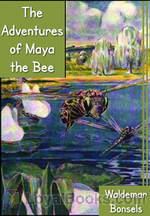 The Adventures of Maya the Bee
The Adventures of Maya the Bee
A little bee is born in a large and busy hive. At that time, the hive is going through a period of unrest and there are fears that it will become subdivided into separate colonies. The little new-born, Maya, is under the care of a strict but loving teacher. One day, driven by curiosity and rebellion, Maya escapes from the safe environs of the hive and flies into the forest. Here, she encounters all sorts of interesting, exciting, frightening and funny things. The Adventures of Maya the Bee is the story of the intriguing days that follow... | |
By: Mary Harris Jones (1830 or 1837-1930) | |
|---|---|
 The Autobiography of Mother Jones
The Autobiography of Mother Jones
Mother Jones (Mary Harris Jones) was a legendary labor organizer. She was a founding member of the International Workers of the World (the IWW, or the Wobblies), and was active in the United Mine Workers and the Socialist Party of America. | |
By: James Weldon Johnson (1871-1938) | |
|---|---|
 Word of an Engineer
Word of an Engineer
James Weldon Johnson was an American author, educator, lawyer, diplomat, songwriter, and civil rights activist. Johnson is best remembered for his leadership within the National Association for the Advancement of Colored People (NAACP), where he started working in 1917, being chosen as the first black executive secretary of the organization, effectively the operating officer. He was first known for his writing, which includes poems, novels, and anthologies collecting both poems and spirituals of black culture. | |
 Self-Determining Haiti Four articles reprinted from The Nation embodying a report of an investigation made for the National Association for the Advancement of Colored People.
Self-Determining Haiti Four articles reprinted from The Nation embodying a report of an investigation made for the National Association for the Advancement of Colored People.
| |
By: Irwin S. Cobb (1876-1944) | |
|---|---|
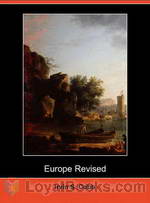 Europe Revised
Europe Revised
Irwin Cobb’s humorous Europe Revised is a travelogue and comedy almost in the style of Mark Twain. The dedication says it best, “To My Small DaughterWho bade me shed a tear at the tomb of Napoleon, which I was very glad to do, because when I got there my feet certainly were hurting me.” | |
By: Guy de Maupassant (1850-1893) | |
|---|---|
 Ball-of-Fat
Ball-of-Fat
The first significant published short story of French author Guy de Maupassant, and generally acknowledged as his greatest work, “Ball-of-Fat” (French title: Boule de Suif) is the touching story of an interrupted coach ride from Rouen to Le Havre during which occurs the corruption of a principled prostitute by immoral and hypocritical members of the upper class. The story is set during the occupation of Rouen at the time of the Franco-Prussian War. | |
 Bel Ami, or The History of a Scoundrel
Bel Ami, or The History of a Scoundrel
“He had faith in his good fortune, in that power of attraction which he felt within him - a power so irresistible that all women yielded to it.”Though firmly set in 1880s Paris, Maupassant's gripping story of an amoral journalist on the make could, with only slight modifications of detail, be updated to the 1960s, to the Reagan-Thatcher years, or maybe to the present day. Anti-hero Georges Duroy is a down-at-heel ex-soldier of no particular talent. Good-looking but somewhat lacking in self-confidence, he discovers an ability to control and exploit women - whereupon his career in journalism takes off, fuelled by the corruption of colleagues and government arrivistes... | |
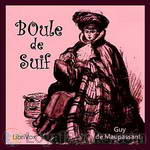 Boule de Suif
Boule de Suif
Boule de Suif (1880) is a short story by the late-19th century French writer Guy de Maupassant. It is arguably his most famous short story, and is the title story for his collection on the Franco-Prussian War, entitled "Boule de Suif et Autres Contes de la Guerre" ("Boule de Suif and Other Stories of the War"). John Ford said that his film Stagecoach was in many ways a western rewrite of Boule de Suif. | |
 Mademoiselle Fifi
Mademoiselle Fifi
| |